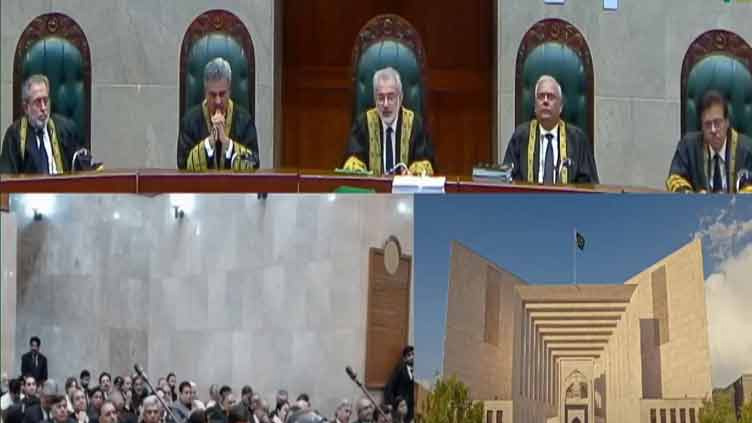Bench composition would help predict case outcomes in past: Chief Justice Isa

Pakistan
The CJP highlights reforms in the Supreme Court at full court reference
ISLAMABAD (Dunya News / Web Desk) - Chief Justice of Pakistan Qazi Faez Isa has remarked that previously the composition of a bench could often predict the outcome of a case.
Chief Justice Isa addressed a full-court reference at the Supreme Court of Pakistan to mark the start of the new judicial year.
Justice Mansoor Ali Shah was absent due to being abroad. Shariat Appellate Bench members Justices Qibla Ayaz and Khalid Masood attended the reference.
In his speech, Chief Justice Isa emphasised the importance of evaluating institution’s performance on such occasions.
He noted that he would complete one year as chief justice in nine days. He said he had introduced the live broadcasting of Supreme Court proceedings, starting with the Practice and Procedure Act case, which was heard by the full court.
Following this, the authority initially held by the chief justice was delegated to a panel of three judges.
Chief Justice Isa discussed the elimination of biases in case assignments, stating that previously, it was possible to predict a case outcome based on the bench's composition.
He mentioned that he no longer knew which judge would hear a case beside him, which he believed was a shift towards more impartial proceedings.
He also addressed the modernisation of the case listing process, stating that the practice of having case lists approved by the chief justice had ended.
Now, the Registrar has been instructed to publish two-week case lists, which would aid lawyers in tracking their cases and managing schedules more effectively.
Chief Justice Isa concluded by mentioning that specific cases, especially related to legislations, were prioritised based on their importance. The court has also issued directives to expedite certain cases as needed.


